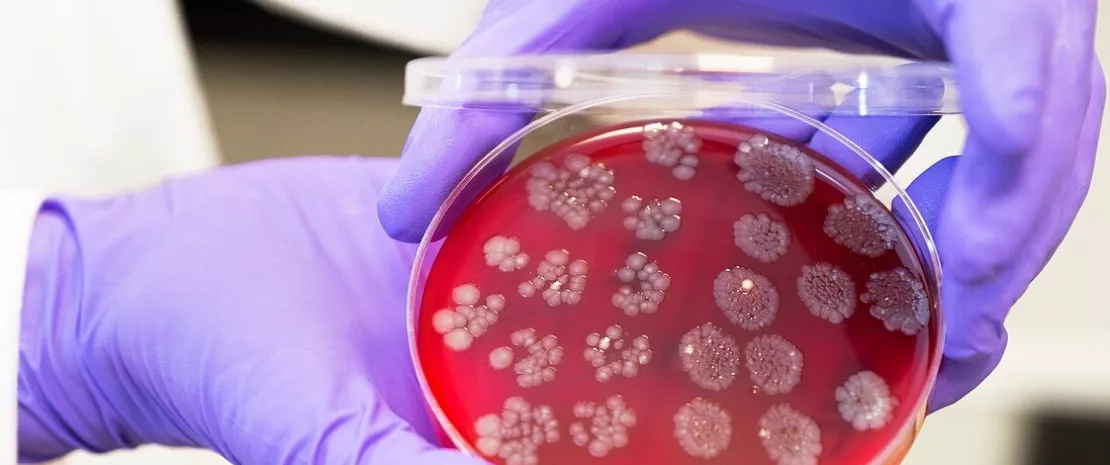Revolutionizing Infection Control: FMT's Role in Combatting Multidrug-Resistant Organisms in Transplant Patients
A pivotal study unveils Fecal Microbiota Transplantation (FMT) as a potent strategy against multidrug-resistant organisms (MDROs) in kidney transplant recipients, marking a significant advance in infection control and antimicrobial resistance.
Lay public section
Find here your dedicated section
Sources
This article is based on scientific information

About this article
Author
The emergence of multidrug-resistant organisms (
(sidenote:
Multidrug-Resistant Organisms (MDROs)
Bacteria that are resistant to multiple antimicrobial drugs.
Source: https://www.science.org/doi/10.1126/scitranslmed.abo2750
)
) poses a formidable challenge in healthcare, particularly among immunocompromised patients such as those undergoing kidney transplantation. A recent randomized controlled trial has shed light on Fecal Microbiota Transplantation (
(sidenote:
Fecal Microbiota Transplantation (FMT)
A therapeutic procedure to restore the gut microbiota by transferring fecal bacteria from a healthy donor to a recipient.
Explore
https://www.science.org/doi/10.1126/scitranslmed.abo2750
)
) as a promising intervention to diminish MDRO colonization in this vulnerable population. The trial involved a meticulous evaluation of FMT's safety, efficacy, and the dynamics of MDRO strain elimination, with compelling outcomes.
Efficacious elimination and engraftment
The study was conducted at the Emory University Hospital, involving a 1:1 randomization of eleven kidney transplant recipients to either an FMT group (n= 6) or an observation group (n= 5), followed by a subsequent FMT for any participants, regardless of initial group assignment, who remained positive for MDROs after the first intervention (day 36), to further assess the efficacy and potential of FMT in eliminating resistant bacterial strains.
The study observed an impressive success rate, with 8 out of 9 patients who received all protocol-specified showing negative results for MDROs post-FMT. This success was attributed to the engraftment of beneficial taxa from the donor, including Akkermansia muciniphila and Faecalibacterium prausnitzii, into the recipients' gut microbiota. These taxa are known for their beneficial roles in the human gut, suggesting a targeted approach to bolstering the recipient's microbiota against MDRO colonization.
A displacement not a replacement
Expanding on the key aspect of how MDRO strains were displaced, the study conducted an in-depth analysis revealing that the introduction of competitive, conspecific bacterial strains from the donor material played a crucial role. This displacement process was not merely a replacement but a strategic displacement leveraging the microbial competition within the gut microbiome. The researchers meticulously reviewed gene content differences between baseline and replacing strains for groups of conspecific isolates, focusing on genes anticipated to enhance strain competition or host cell surface adhesion.
Significant findings were observed in the gene content analysis, particularly concerning colicins, a subset of bacteriocins produced by E. coli that exhibit toxicity towards other E. coli strains and close relatives. Experimental data have shown that colicin-producing E. coli strains can outcompete colicin-susceptible strains, which in turn may be outcompeted by colicin-resistant strains, demonstrating a complex nontransitive competition dynamic similar to a “rock-paper-scissors game”. This dynamic was evident in the study's findings where susceptible replacing strains, possessed multiple colicin and colicin immunity genes absent in the antibiotic-resistant strains.
These findings illustrate the multifaceted nature of FMT's impact on microbial ecology within the gut, highlighting that the displacement of MDROs by FMT involves a complex interplay of microbial competition, genetic determinants of competitiveness, and the gut environment's selective pressures.
Implications for clinical practice
The implications of this study extend beyond the immediate benefits to kidney transplant recipients. It signals a paradigm shift in how we approach infection control and antimicrobial resistance, advocating for innovative treatments that leverage the body's natural microbial communities. As we move forward, the integration of FMT into clinical practice could revolutionize the management of MDRO colonization, offering hope to patients and healthcare providers alike.










